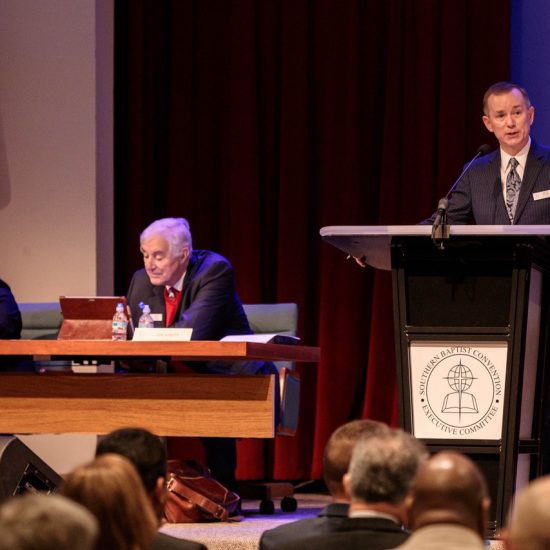Most Baptist entities these days are challenged not only to be more effective but to be more efficient as they deal with shrinking income, whether they be state or national conventions, regional associations, ministry-specific agencies and organizations or the local church. Re-examining and refining priorities is an ongoing discipline. Priorities must be protected.

Bill Webb
|
One of the priorities of all of these organizations, including local congregations, must be the care of the primary resource — the people who make up the staff. Nowhere is this more important than in the church.
Some congregations do a better job than others at appropriate care of the pastor and staff, and their families. Many congregations do poorly at this priority, often inadvertently. Salaries are low, health and retirement provisions are limited or non-existent, and opportunities for personal and professional renewal are ignored.
Congregations that do well develop a reputation for positive care, not only for the pastor but any other staff members. Church members treat their own ministers and other staff the way they would like to be treated in their own vocations and work situations. This isn't exactly rocket science, and it need not be overly burdensome for a church family if it values and cares for its staff.
The pastor and those who serve the other needs of the congregation are worthy of appropriate salaries. Very few pastors die wealthy. Far too many retire or die in poverty, even though they rendered selfless and outstanding service to the Lord and the congregations they served. Need some help in getting up to speed? Contact GuideStone Financial Resources (guidestone.org) or the state convention office for information that provides updates on pastoral and staff remuneration. Another organization that provides this kind of resource to a broad range of Baptists is the Ministers and Missionaries Benefit Board (mmbb.org).
Err on the side of generosity. The church is elevated in scripture. To treat its staff shabbily is hardly a godly option. When it comes to financial support, do what is right!
Protect the staff with appropriate insurance protection. Every person on earth is capable of experiencing a catastrophic illness or a traumatic injury that has the potential for bankrupting a family. Walk into a lot of local gasoline stations or convenience stores and you'll notice a jar of paper bills and change designated for the care of a seriously ill child or a family's resulting medical expenses.
Medical insurance can be expensive, to be sure, but it is far easier for a congregation to manage than it is for each staff family individually, especially on some pastoral and staff salaries. Most insurance provisions include a level of life insurance to protect the staff member's family should death occur. Another form of protection is disability coverage, very important for the breadwinner in a family.
Again, the rule of thumb for a congregation: Do what's right!
Anticipate the retirement needs of staff members at appropriate levels. One of the most difficult things for a young minister or staff member to do is to start setting aside even a modest amount of funds in a retirement account early in one's ministry or career — precisely when it has the best chance to grow over several years. Helping them do this is one of the most loving things a congregation can do, especially since many pastors opt out of Social Security and have limited savings on which to live out their retirement years.
A rule of thumb for funding a staff member's retirement account is 10 percent of gross salary with an option for the staff member to add to the account from his/her own pocket. Once again, what might be difficult for a staff member is usually easier for a whole congregation.
Too many retired pastors and their spouses live below the poverty line because neither they nor their congregations planned for the inevitable — retirement. This is scandalous. Do what is right!
Finally, take steps to refresh the church staff, particularly those who carry the burden of responding to the ministry needs of the congregation.
How do churches help their ministers? They provide adequate vacation time and make sure the staffer uses it. They provide for training opportunities or expenses to attend needed meetings and state conventions. They budget for out-of-pocket ministry-related expenses like travel. They build in study allowances, providing funds for books and other tools. They use every opportunity to recognize leaders on anniversaries and other occasions. They show their love and appreciation intentionally. Do the loving thing. Do what is right!
Intentionality is the key. This list is not meant to be exhaustive. But a congregation must have an ongoing plan to protect its most significant resource, its staff.
People in the community who are outside the church notice if and how a congregation cares for and provides for its staff. They know whether it is being done well, or whether it is being handled poorly. If well, then the gospel message of the congregation to others is more likely to be well received. If poorly, the message of love doesn't necessarily ring true. It is no wonder that the message of the church that it loves people sometimes falls on deaf ears.
Make pastoral and staff care a priority. Or maintain this priority. It is important for the church and it is important for the congregation's witness.
Bill Webb is editor of Word&Way.


